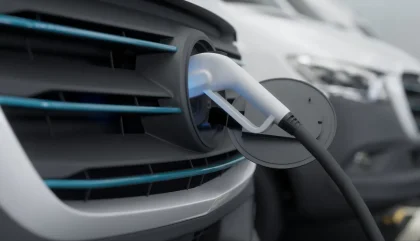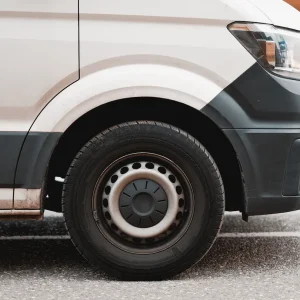
Plans to change rules for electric vans weighing 3.5-4.25t have been announced by the UK Government, following a consultation.
Under a derogation, electric vans weighing up to 4.25t are classed as LCVs, for which the usual weight limit is 3.5t, to account for the extra weight of batteries. However, this did not prevent 4.25t electric vans being classed as HGVs for purposes such as MOT testing and tachograph regulations
In its response to a consultation on the issue, the Department for Transport (DfT) has said 3.5-4.25t electric vans will be moved into the Class 7 MOT system, currently applied to vehicles weighing 3.0-3.5t, benefits of which include a first test after three years, rather than one year.
As for tachographs, the DfT has said it will explore options for moving 3.5-4.25t electric vans out of the scope of assimilated drivers’ hours rules.
Legislation will be required to implement the proposals.
The consultation also looked at speed limiter rules, on which the DfT has said further consultation would be required for changes to be made.
Reacting to the DfT’s response, BVRLA chief executive Toby Poston said: “This is a great result for the van sector and delivers something the Zero Emission Van Plan has pushed up the agenda.
“Policymakers have listened to the fleet sector. We now need to see the legislation passed quickly to finally remove these restrictive regulations.
“Today’s progress underlines what can be achieved when an industry comes together with a shared voice, met by government representatives that are ready to listen. Operators of large vans are being given the chance access cleaner, greener models, no longer hamstrung by illogical operational loopholes.”
AA fleet director Duncan Webb said: “We are pleased to see this consultation response containing final recommendations that will enable this sector of vans to convert at greater pace to electric.
“From the outset we have supported the great work of the BVRLA and AFP on the Zero Emission Van Plan and we look forward to the relevant legislation being put in place.
“However, we stress that urgency is required as EV van adoption at pace in this sector can only be achieved if the legislation is forth coming quickly and until it does there remains a fundamental challenge that fleets will struggle to resolve.”
AFP chair Paul Hollick said: “Alongside other industry bodies, we’ve been pushing for these measures for some time and we’re really pleased to see the government commit to pass legislation following the review.
“Electric van adoption by fleets is proving much slower than anyone would like and these issues surrounding 4.25tvans have been unnecessary obstacles. We’d now like to see these changes made law as soon as possible.”





